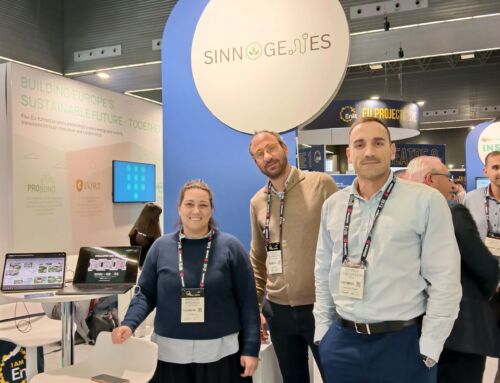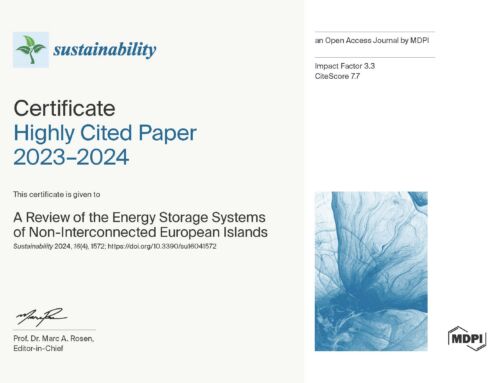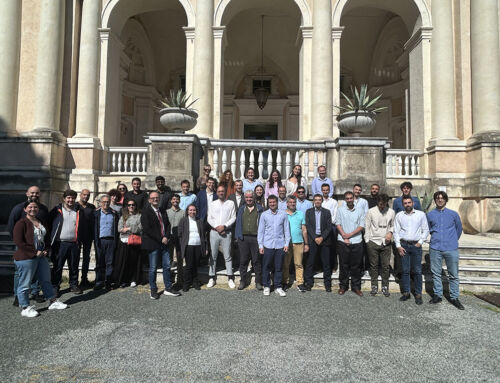As Europe’s energy systems evolve toward greater decentralisation and integration of renewable energy, increasing power flow management capabilities are required. Enabling Flexibility – the capability to adjust electricity consumption or generation in response to grid needs – becomes a relevant asset to distribution network operators, such as the Portuguese Distribution System Operator (DSO) E-REDES, providing additional management capabilities to deal with congestion, support service restoration and planned maintenance.
By leveraging the responsiveness of industrial and commercial energy users, DSOs can optimise grid operations, defer investments, and enhance resilience. In Portugal, local flexibility markets are being tested under the FIRMe project, led by E-REDES, with support from Piclo´s platform, an independent marketplace for the procurement of flexibility services designed to provide support to distribution network operations and postpone grid reinforcement investments.
In this context, the SINNOGENES project aims to demonstrate how distributed energy storage can contribute to maximising system flexibility. More specifically, the Portuguese pilot, Demo Site #1, located in Maia within the Porto Metropolitan Area, will demonstrate how energy storage can help decarbonise industrial energy consumption and maximise the use of local renewable energy sources (RES) while providing additional flexibility to the grid.
With the aim of aligning the project developments with DSO flexibility requirements, the consortium held a workshop on June 30, 2025, with E-REDES. The team presented the project’s scope, goals, and the work underway at Demo Site #1. A key component of the site is a decision support tool designed to schedule energy storage assets for day-ahead operations. This tool, known as MOMENTO, will help optimise the use of storage systems to reduce energy costs and enable participation in reserve services—supporting the broader goal of integrating flexibility into grid operations.
Key Outcomes and Insights
Synergies between the SINNOGENES project and the ongoing initiatives of E-REDES were discussed to enable local flexibility further.
E-REDES outlined the main flexibility services being tested within the FIRMe project and discussed its main requirements. It was concluded that Demo #1 would align tool development to meet the requirements of flexibility activation, according to the FIRMe pilot requirements. Four distinct flexibility services are considered on the FIRMe Piclo´s platform: dynamic, secure, sustain and restore. These are defined as follows:
- Dynamic: the system operator procures the ability of a service provider to deliver an agreed output change following a network abnormality.
- Secure: the system operator is procuring, ahead of time, access to a pre-agreed change in the service provider input or output based on near real-time network conditions.
- Sustain: the system operator procures a pre-agreed input or output change over a defined period to prevent the network from exceeding its firm capacity.
- Restore: the system operator instructs a service provider, following a loss of supply, to either remain off-supply, reconnect with lower demand, or reconnect and supply generation to support increased and faster load restoration under depleted network conditions.
The meeting also provided an opportunity to reflect on several technical and strategic considerations that will shape the next steps of the demonstration. It was noted that many industrial clients lack advanced control systems, such as SCADA, which reinforces the importance of developing simple and accessible solutions that a wide range of users can easily adopt. In this context, the approach to flexibility must remain agnostic to the type of technology, enabling participation from diverse energy assets.
Participants also emphasised the importance of framing visibility and control mechanisms as empowering tools rather than intrusive systems. Building trust and encouraging active participation from end users will be essential to the success of flexibility initiatives. Furthermore, the activation of flexibility services does not require long-term commitments—minimum service durations can be as short as 15 minutes, with pricing and capacity defined dynamically, offering a high degree of operational adaptability.
To support these efforts, Demo Site #1 is equipped with three battery systems (one 320kW and two 100kW units), which will be used to test various flexibility services. The focus will be on load reduction strategies, avoiding energy injection into the grid and instead emphasising internal optimisation and responsiveness.

This collaboration represents a meaningful step toward integrating European innovation with national energy strategies. By aligning SINNOGENES with FIRMe, the project is helping to shape the future of energy flexibility in Portugal—making the grid smarter, more resilient, and more responsive to the needs of both operators and users.







